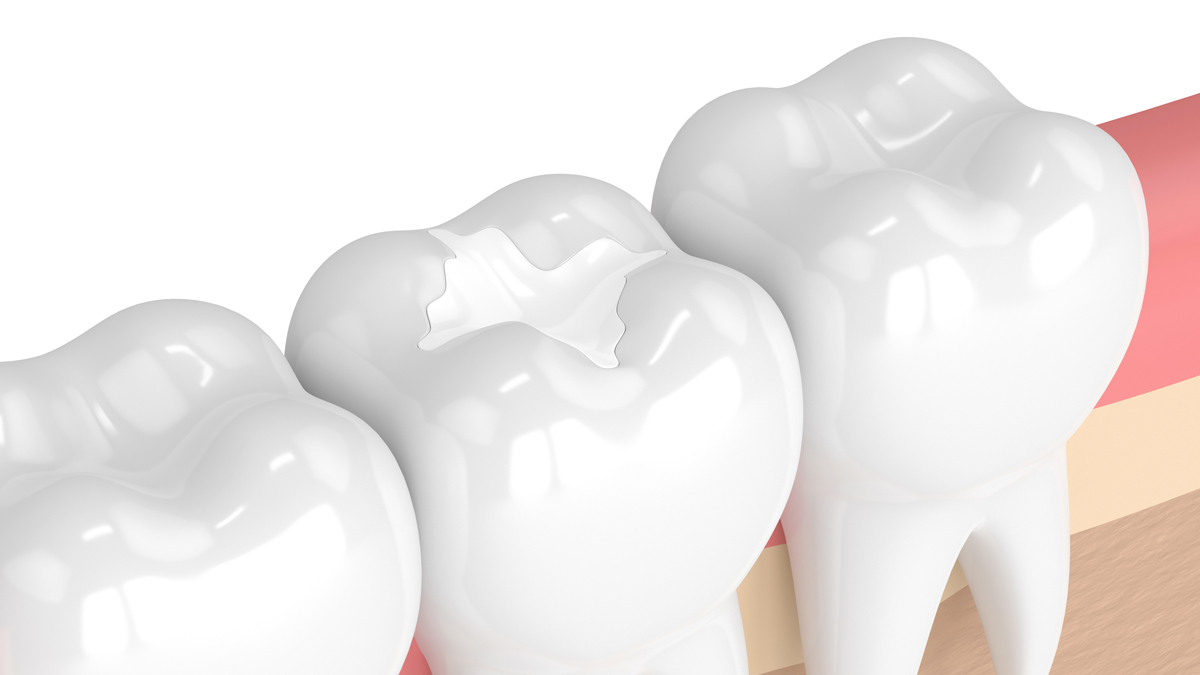Your child’s smile lights up a room, doesn’t it? Indigo Pediatric Dentistry is committed to keeping children’s smiles healthy with modern day preventive care.
“Our goal in pediatric dentistry is to prevent decay and not just fix it,” said Dr. Rula Shalabi, a board-certified pediatric dentist.
A particularly dangerous and prevalent childhood disease that Dr. Shalabi said she sees in the office is called early childhood caries (ECC). Formerly referred to as baby bottle tooth decay, ECC is defined as one or more decayed or missing teeth in children under the age of 6. This results from poor diet maintenance and high consumption of sugar-laden foods and beverages between meals without proper cleaning.
“Frequency of snacking is just as bad as not brushing,” Dr. Shalabi said.
ECC was named baby bottle tooth decay because it was found in babies who developed tooth decay from the sugars in their milk and juice bottles.1 Dentists now recommend wiping a child’s gums and brushing baby teeth after feedings to rid the area of harmful bacteria.
One of the best ways to prevent ECC in modern medicine is the application of sealants at your dentist’s office. Sealants are a thin, protective coating that adheres to the chewing surface of your back molars. They have been proven effective for at-risk, early-school-aged patients, typically between the ages of 6 and 12. The have been shown to reduce the risk of decay by nearly 80% in molars and essentially can reduce the need for further costly dental treatments. This type of preventive dental procedure is offered to children whose permanent molars have erupted. Between these ages, children are found to snack most frequently and brush with less supervision as they learn independence from their parents.
“Sealants on molars protect the grooves,” said Dr. Shalabi.
Pits, or grooves, retain plaque and spiral downward into decay. If cavities are found in a child’s baby – primary – teeth, the probability of occurrence in permanent teeth also rises due to the formation of bad habits, according to Dr. Shalabi.
A National Health and Nutrition Examination Survey found that 58% of adolescents ages 12 to 19 experienced lesions from ECC in their permanent teeth. The consequences of ECC go beyond a compromised smile for all ages: hospitalizations and emergency room visits, missed school days, reduced ability to learn and diminished quality of life, according to the Council on Clinical Affairs.1
When studied by a panel, the recommendation emerged to use sealants on permanent teeth whether or not the teeth were previously affected with ECC. 2 They should be used in conjunction with fluoride supplementation for children at risk. The American Academy of Pediatric Dentistry recognizes community water fluoride levels to be the most beneficial intervention, but that doesn’t mean you should skip its application at your next visit to the dentist.
Preventive sealants are affordable and available at many pediatric dental offices, including Indigo Pediatric Dentistry. Children usually go to their dentist for a cleaning every six months, which is twice more frequently than visits to the pediatrician’s office for a checkup.3 As a result, dentists now have an opportunity to affect a child’s well-being by providing preventive care and improving dental health. Ask about preventive sealants at your next appointment.
For more information, visit www.smilewithindigo.com or call 864-442-6770.
Citations:
1(2016). Policy on Early Childhood Caries… Council on Clinical Affairs, Vol. 40/NO6/18-19, pp. 60-62
2(2016). Use of Pit-and-Fissure Sealants. American Academy of Pediatric Dentistry and American Dental Association, Vol. 40/NO6/18-19, pp. 162-178
3(2018).Periodicity of Examination, Preventive Dental Services… Council on Clinical Affairs. Vol. 40/NO6/18-19, pp. 194-204
